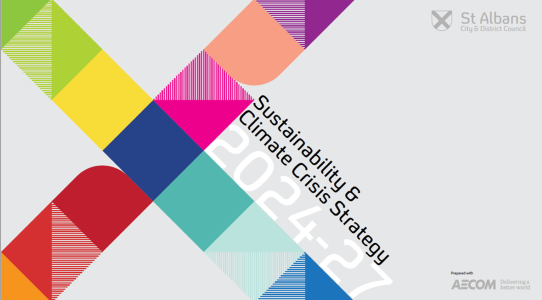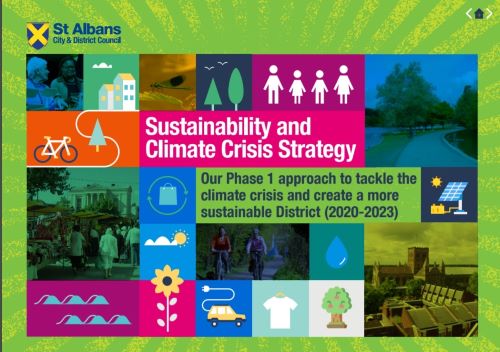Sustainability and Climate Crisis Strategy
Tackling the climate crisis is a key priority of our Council Plan 2024-29. In 2019, all political parties agreed that we will reduce our own greenhouse gas emissions and do everything in our power to influence the District’s emissions, to achieve Net Zero by 2030.
Greenhouse gas emissions from burning fossil fuels, agriculture and industrial processes, trap heat and create a warming effect on the planet. The increasing quantity of gases in the atmosphere is warming the earth and affecting climate systems causing devastating impacts. We need to dramatically reduce greenhouse gas emissions as quickly as possible. This means replacing fossil fuels as a source of power for our homes, businesses, and transport, and minimising any harmful greenhouse gases from animal farming and industrial processes.
If every country were to succeed in reducing global emissions to net zero, we could reduce the impacts of climate change well into the future. However, climate changes will still occur in response to the greenhouse gases that have already been released to the atmosphere. This is why we also need to strengthen our ability to adapt to and cope with, the expected climate changes. This is important to reduce the potential impact of changing weather patterns (e.g. flooding, storms, and higher temperatures), will have on St Albans District.
Why we must act now
St Albans District has, and will continue to, experience the impacts of a changing climate, with extreme weather such as heat waves and droughts. These events will occur more often and become harder-hitting if we continue to emit greenhouse gases. The effects will be experienced more keenly by the most vulnerable, disadvantaged, and marginalised groups. It is therefore vitally important that we all act to both reduce emissions and plan to reduce the impacts the district will experience due to our changing climate.
Sustainability and Climate Crisis Strategy
Our Sustainability and Climate Crisis Strategy sets out all the actions we plan to take between 2024 and 2027, to minimise our greenhouse gas emissions and environmental impacts, tackle the climate crisis, improve the environmental sustainability of our operations and services, and act as a strong community leader to support and enable action across all parts of our community.
The strategy focuses our attention on creating strong internal governance and leadership on sustainability and climate change, reducing building energy use, promoting sustainable transport, improving air quality, reducing waste, protecting biodiversity, supporting sustainable food and saving water. It incorporates the essential task of reducing our emissions (climate mitigation) as well as ensuring that we are resilient to changing environmental conditions (climate adaptation).
The 2024-27 strategy acts as a supplement and update to the 2020-203 strategy. Both documents are provided below. We will be posting progress on this page so please check back to find out how we are doing.






